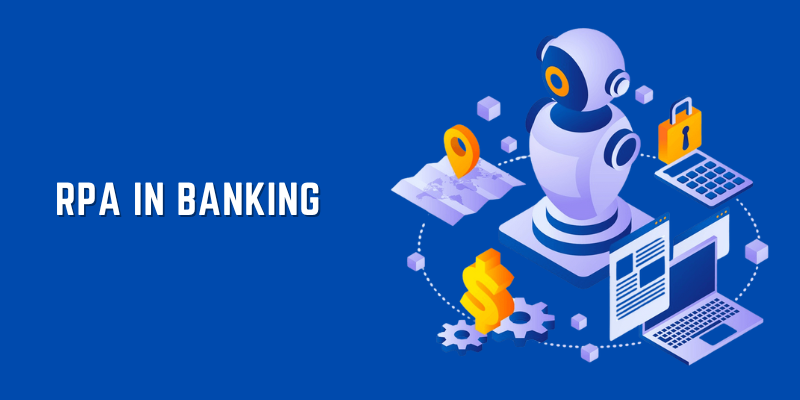
In the fast-paced world of banking, efficiency and accuracy are paramount. With the increasing demands of customers and the need for stringent regulatory compliance, banks are turning to innovative technologies to streamline their operations. One such technology that has gained significant traction is Robotic Process Automation (RPA). RPA involves using software robots to automate repetitive and rule-based tasks, freeing up human resources for more complex and value-added activities. This blog will explore how RPA helps in banking, enhancing efficiency, improving customer service, ensuring compliance, and reducing operational costs. For those interested in mastering RPA, RPA Training in Chennai at FITA Academy offers comprehensive training to equip professionals with the necessary skills.
Enhancing Efficiency
- Streamlining Back-Office Operations: Back-office operations in banks involve a multitude of repetitive and time-consuming tasks such as data entry, account reconciliation, and transaction processing. RPA can automate these tasks with high accuracy and speed, significantly reducing the processing time. For example, RPA bots can automatically extract data from various sources, enter it into the banking systems, and perform reconciliations, thereby minimizing errors and delays.
- Increasing Loan Processing Speed: Loan processing is a critical function in banking that involves numerous steps, including application verification, credit checks, and documentation. These processes are often manual and prone to errors. RPA can automate the entire loan processing workflow, from data extraction and validation to credit scoring and documentation. This not only accelerates the loan approval process but also improves accuracy and customer satisfaction.
Improving Customer Service
- Enhancing Customer Onboarding: Customer onboarding is the first interaction a new customer has with a bank. It involves multiple steps such as KYC (Know Your Customer) verification, document submission, and account creation. RPA can streamline the onboarding process by automating document verification, data entry, and account setup. This ensures a smooth and efficient onboarding experience, reducing the time taken to onboard a new customer from days to minutes.
- Personalizing Customer Interactions: RPA can enhance customer service by providing personalized and timely responses to customer queries. By integrating RPA with artificial intelligence (AI) and machine learning (ML) algorithms, banks can analyze customer data to predict their needs and preferences. This enables banks to offer personalized products and services, improving customer satisfaction and loyalty. Enrolling in an RPA Course can help professionals understand how to implement these technologies effectively.
Ensuring Compliance
- Automating Regulatory Reporting: Compliance with regulatory requirements is a major challenge for banks, involving extensive reporting and documentation. RPA can automate the generation of regulatory reports by extracting data from various sources, validating it, and compiling it into the required formats. This not only ensures timely and accurate reporting but also reduces the risk of non-compliance and associated penalties.
- Enhancing Fraud Detection: Fraud detection is a critical aspect of banking operations that requires continuous monitoring and analysis of transactions. RPA, combined with AI and ML, can enhance fraud detection capabilities by analyzing large volumes of transaction data in real-time. RPA bots can identify suspicious patterns and flag potential fraudulent activities for further investigation, thereby reducing the risk of fraud and enhancing security.
Reducing Operational Costs
- Lowering Manual Processing Costs: One of RPA’s significant advantages is the reduction in manual processing costs. By automating repetitive and rule-based tasks, banks can significantly reduce the need for manual intervention, leading to cost savings. RPA bots work 24/7 without breaks, ensuring consistent performance and reducing the dependency on human resources for mundane tasks.
- Optimizing Resource Allocation: RPA allows banks to optimize resource allocation by freeing up employees from repetitive tasks and enabling them to focus on more strategic and value-added activities. This not only improves employee productivity and job satisfaction but also enhances the overall efficiency of banking operations. Training Institute in Chennai offers specialized programs to equip professionals with the skills to leverage RPA effectively.
Robotic Process Automation (RPA) is revolutionizing the banking industry by enhancing efficiency, improving customer service, ensuring compliance, and reducing operational costs. Automating repetitive and rule-based tasks, RPA enables banks to streamline their operations, accelerate processing times, and enhance accuracy. Moreover, RPA enhances customer experience by providing personalized and timely responses while also ensuring compliance with regulatory requirements and enhancing fraud detection capabilities. As banks continue to navigate the challenges of the digital age, RPA stands out as a powerful tool that can drive innovation, improve operational efficiency, and deliver superior customer experiences. Investing in RPA technology is not just a strategic advantage but a necessity for banks aiming to stay competitive in the rapidly evolving financial landscape.
